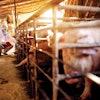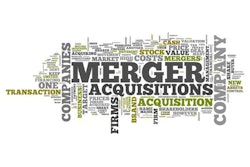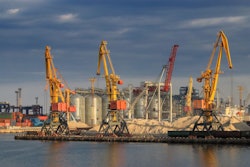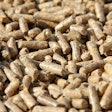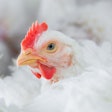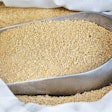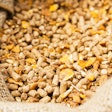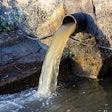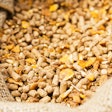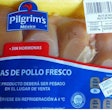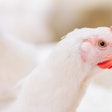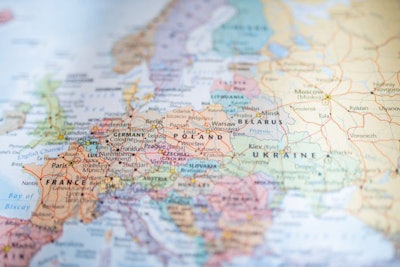
Supply chains and prices among the issues of concern as Russia-Ukraine conflict drags on
Agriculture ministers in the European Union (EU) have been drawing up plans for food security in response to the invasion of Ukraine by Russia and Belarus. Among these is the future cultivation of fallow land. Arising from the uncertainty are forecasts of rising prices for food generally, as well as animal feeds and fertilizer, and more supply chain disruption.
Exchanging information and forecasts about supply chains and prices, and identifying the issues that require special monitoring were among the main topics discussed at the latest meeting of EU agriculture ministers. Furthermore, participants explored measures that could be taken to manage the supply situation within the region, as internationally.
Unanimously, ministers expressed their solidarity with Ukraine.
“The terrible events taking place in Ukraine cast a tragic light on the need for us to strengthen our food sovereignty so as to ensure food security in times of crisis — both within the European Union and around the world,” said the French agriculture minister, Julien Denormandie.
After the meeting, EU Agriculture Commissioner Janusz Wojciechowski announced a series of actions to address the potential food security issues ahead for the community.
Among these was the activation of the Commission’s European food crisis preparedness and response mechanism. For those sectors most affected by rising costs, exceptional measures may be introduced under the regulation, Common Market Organisation.
Also under ongoing consideration is the adoption of measures to expand European production capacity. This could be achieved as early as this year, for example by using fallow land for the cultivation of protein crops.
At the meeting, representatives of some member states called for the future prioritization of EU resilience in food supplies. In the short term, this should include a strategy and a set of tools to improve food security. They also urged for the eventual inclusion of food sovereignty into EU agricultural policy in the longer term.
Among the areas that ministers identified as having particular vulnerability to food supply is the Mediterranean region.
Likely impact on European food prices
Before the tension rose in the Black Sea area, global food markets were under pressure, according to the Agricultural Market Information System (AMIS). This pressure was demonstrated in rising food prices, disruption of supply chains and an uneven recovery from the coronavirus (COVID-19) pandemic. Despite this, the outlook was viewed as generally favorable for 2022 — even with some reductions in prices for the year ahead.
However, escalation of the conflict into Ukraine has put markets into “serious turmoil,” according to AMIS. Launched in 2011, AMIS is an inter-agency platform to enhance food market transparency and policy response for food security. It represents members of the G20 plus other major food-exporting and importing countries.
Ahead of the invasion of Ukraine, financial and oil markets reacted quickly. However, impacts on world grain markets are likely to be just as dramatic.
According to AMIS, one-third of global wheat exports come from Ukraine and the Russian Federation. Ukraine is also a leading exporter of other staples such as barley, corn, sunflower and other oilseeds. Many of these products are destined for states that are heavily reliant on food imports.
Most of the nation’s grain shipments are from Odessa and other Black Sea ports, which are under blockades.
Furthermore, the Russian Federation is a leading producer of fertilizers such as urea and potash. Any disruption to these supplies will likely drive up global food prices further.
In the short term, the situation may benefit some producers through a rise in the processing of their products. However in the short term, AMIS forecasts further price rises and food insecurity. Effects will likely disproportionately hit low-income countries with limited financial resources to support poor families.
Feed association responds to invasion of Ukraine
European feed manufacturers’ association FEFAC reported last week that its members are continuing to honor their contracts. This is despite awareness that the inability to import raw materials from Ukraine will lead to severe shortages for feed and food.
According to this source, Ukraine exports around 60 million metric tons (mmt) of grain worldwide. For the current marketing year, this was expected to include 33 mmt of corn, and 24 mmt of wheat.
In an average year, Europe imports 11 mmt of Ukrainian corn, along with 2 mmt sunflower oil.
Along with its sister organizations, FEFAC has called for immediate consideration of the practical issues for ships arriving in Europe from Ukraine.
It is also calling for a contingency plan to help mitigate the loss of commodities originating in the Black Sea region.
Slowdown in eastern European grain shipments
As merchants attempt to source grain from other European countries, they are facing extra challenges.
According to a recent Reuters report, additional customs checks were carried out before a cargo ship could depart from Bulgaria. Carrying wheat, the ship was in the port of Burgas, and bound for Portugal.
Demand for Bulgarian grain has risen sharply as the invasion of Ukraine as traders seek alternative suppliers to Ukraine and Russia.
This has led to accusations of Bulgaria blocking exports — even planning to introduce an export ban — and breaching EU principles of the free movement of goods. The country’s officials deny the claim, saying that additional customs checks are needed in the current situation.
Already announcing a total ban on grain exports last week was Hungary. Coming into effect immediately, the move is driven by rising prices caused by Russia’s invasion of Ukraine, according to Reuters.
Impacts on the Dutch economy
In the Netherlands, the economy is under heavy pressure from the escalating conflict in Ukraine. This is according to a recent analysis from Rabobank.
For Dutch food and agricultural markets, loss of Russia as a trading partner will have limited impacts.
However, the indirect impacts are expected to have greater consequences, the bank forecasts. Higher prices for gas and grains are already driving up costs for food producers. Ahead are likely further rises in the prices of livestock feeds and fertilizers.
For the time being, retailers are reluctant to pass on price rises to consumers in the Netherlands. That will mean the increased costs will have to be borne by the supply chain, according to this source.
This situation will be similar in many other countries. And where this is not the case, food price inflation will present an even greater challenge for consumers.
Global impacts of the invasion of Ukraine on food and agricultural markets were explored in a recent press call by Rabobank.
